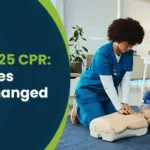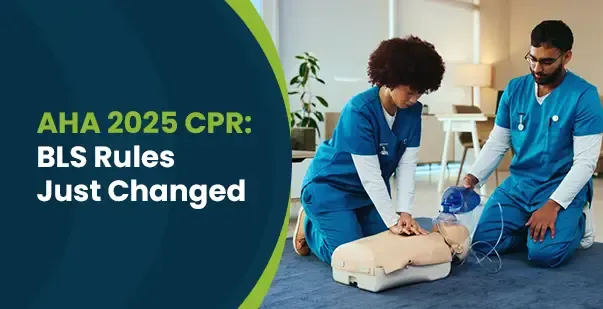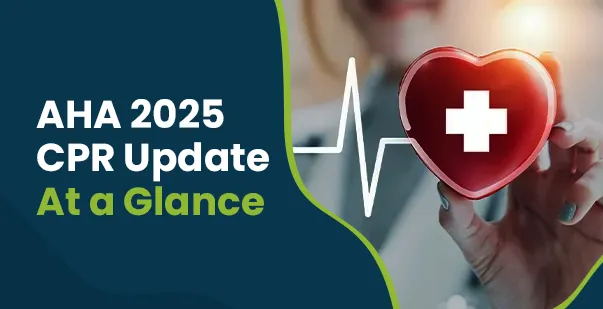The lungs in the human body play a remarkable role and provide the body with fresh air. However, some genetic and lifestyle issues can cause the thin air sacs and pipes in the lungs to shrink, resulting in asthma. Did you know that asthma alone took 3517 lives in 2021 in the USA? It is a severe illness that can get out of hand rapidly. Most people panic when they witness a person having an asthma attack. You can change this pattern by empowering yourself with knowledge of asthma first aid. Read on to learn more about asthma, its causes, and related first-aid techniques.
What is an Asthma attack?
An asthma attack is when someone with asthma has a hard time breathing. It happens because the tubes that carry air in and out of the lungs get narrow, making it difficult for air to flow freely. It can cause symptoms like wheezing (a high-pitched whistling sound when breathing), coughing, tightness in the chest, and feeling like you can’t catch your breath. Allergies, exercise, cold air, or illnesses can trigger an asthma attack. People with asthma need to have a plan in place to manage their symptoms. They must seek first aid for difficulty in breathing to ensure the situation stays in control.
Early Signs of an Asthma Attack
Individuals with asthma must recognize these early signs and take prompt action. You can do this when you invest in a good first aid course for asthma. Early signs of an asthma attack can vary among individuals, but typical indicators include:
- Persistent Night Coughing
- Shortness of Breath
- Wheezing (High-pitched whistling or squeaky sound when breathing)
- Unexplained Fatigue
- Chest Tightness
- Irregular Breathing Changes
- Increased Respiratory Rate
- Restlessness
Causes of Asthma
Asthma has several complex causes with no clear answer in sight. While some research points towards genetics, others discuss the origin of infection-based asthma. Here are five prominent causes of this illness:
- Genetics: A family history of asthma or other allergic conditions increases the risk of developing asthma. Specific genes associated with asthma susceptibility play a role.
- Environmental Allergens: Exposure to pollen, dust mites, mold spores, pet dander, and cockroach droppings can trigger asthma symptoms in susceptible individuals.
- Respiratory Infections: Viral respiratory infections, especially during early childhood, can contribute to the development of asthma. Common flu viruses could lead to asthma.
- Occupational Exposures: Exposure to certain workplace irritants or allergens, such as chemicals, dust, or fumes, may contribute to developing or enhancing asthma in susceptible individuals.
- Tobacco Smoke: Exposure to environmental tobacco smoke, either during pregnancy or after birth, increases the risk of asthma development and exacerbates symptoms in individuals with existing asthma.
You must stay well-versed with first aid for asthma attacks to ensure you can help a person in need.
First aid for Asthma Attack
Providing first aid for asthma involves helping the person manage their symptoms and ensuring they receive appropriate medical attention. You must calm the patient down and help them breathe. Here are first aid steps for asthma:
- Stay Calm: Keep the person calm and reassure them. Anxiety can exacerbate asthma symptoms. You need to use first aid for asthma attacks without an inhaler so ensure you too stay calm.
- Help the Person Sit Up: Assist the person in sitting up in a comfortable position. Leaning forward may make breathing easier.
- Assist with Medication: If the person has a prescribed inhaler, assist them in using it. Most inhalers are bronchodilators that help open airways. Follow their asthma action plan if available.
- Use a Spacer if Available: If the person has a spacer with their inhaler, encourage its use. A spacer helps ensure more effective delivery of the medication to the lungs.
- Administer a Second Dose if Needed: If the person’s symptoms persist or worsen after the first dose, you can give the second dose as per their prescription.
- Call for Emergency Medical Help: If symptoms do not improve or the person has severe difficulty breathing, call emergency services immediately.
- Monitor Vital Signs: Monitor the person’s vital signs, including their breathing and heart rates. Be prepared to perform CPR if the person becomes unconscious and stops breathing.
- Comfort and Support: Provide comfort and support while waiting for emergency medical services. Encourage slow, deep breaths and try to keep the person relaxed.
What Happens if an Asthma Attack Goes Untreated?
If an asthma attack goes untreated or if you delay appropriate intervention, it can lead to severe complications and a potentially life-threatening situation. Here are some potential consequences of untreated or poorly managed asthma attacks:
- Respiratory Failure: Without prompt treatment, the inability to move air in and out of the lungs can lead to respiratory failure, where oxygen levels in the blood drop dangerously low.
- Hypoxia (Low Oxygen): Insufficient oxygen supply to the body’s tissues can lead to hypoxia, affecting vital organs such as the brain, heart, and kidneys.
- Loss of Consciousness: Severe asthma attacks may cause a person to fall unconscious due to a lack of oxygen.
- Cardiac Arrest: In extreme cases, prolonged lack of oxygen could lead to cardiac arrest.
- Intensive Care Admission: Untreated severe asthma attacks often require admission to an intensive care unit (ICU) for advanced respiratory support.
- Death: While rare, untreated severe asthma attacks have the potential to be fatal. Death may occur due to a lack of oxygen reaching vital organs or cardiac complications.
Read More: https://cpraedcourse.com/blog/what-to-do-when-someone-is-choking-on-water/
Conclusion
It is highly crucial to diagnose and get treated for asthma. This illness is a silent killer and often goes unnoticed till the attack strikes. Every patient and their families must know asthma first aid and ensure people around them know of their situation. With the right knowledge and certification, you control the case during an asthma attack and save a precious life.









